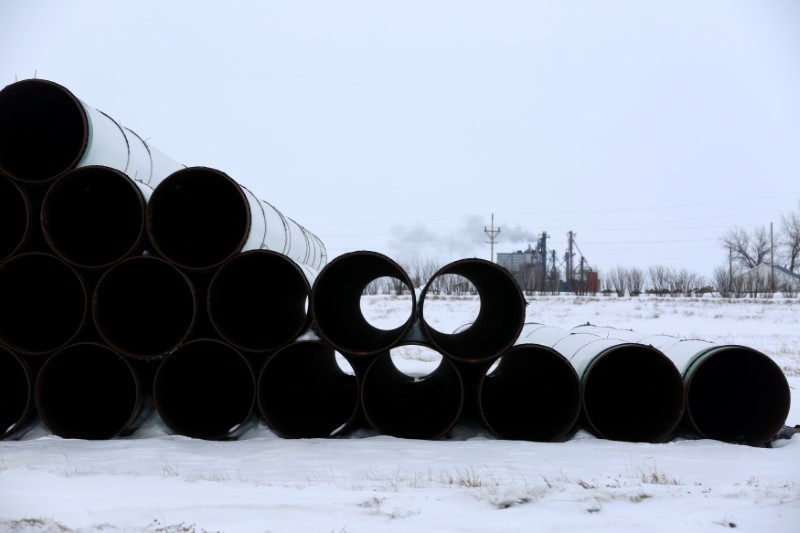By Jim Morris
WHISTLER, British Columbia (Reuters) - TransCanada Corp has yet to discuss the Keystone XL oil pipeline with shippers and is not certain if all were still in support of it, the company's CEO said on Wednesday in his first public comments since President Donald Trump revived the project.
The new U.S. president signed an order on Tuesday that allowed TransCanada (TO:TRP) to reapply for a permit for Keystone XL, after it was rejected in 2015 by then-President Barack Obama on environmental concerns.
TransCanada Chief Executive Russ Girling said the firm was "diligently" preparing its application for the 1,179-mile (1,900 km) pipeline from Hardisty, Alberta, across the U.S. border to Steele City, Nebraska.
Girling said he believes the project remains attractive for shippers, given that it will supply the popular Gulf Coast market.
"But we haven't engaged in direct conversation on that issue," he said at an investors conference. "This wasn't in our planning horizon in the middle of last year, so we've only just re-engaged with our shippers again."
Analysts and traders said the C$8 billion ($6.1 billion) pipeline was far from being a certainty.
Since it has been proposed nearly a decade ago, TransCanada has lost some initial support from shippers during its arduous approval process, said a Canadian crude trader familiar with the pipeline contract who declined to be identified due to a lack of authorization to speak to the media.
The pipeline has faced fierce opposition over environmental concerns and still needs to get approval from the state of Nebraska.
TransCanada late Wednesday did not immediately respond to a request for comment about the shippers' commitment to the project.
If operational, Keystone XL would bring more than 800,000 barrels per day of heavy crude from Canada, which holds the world's third-largest crude reserves but lacks the infrastructure to move it easily.

The project has received regulatory approval and government backing in Canada.
(Writing and additional reporting by Ethan Lou in Calgary, Alberta, and Catherine Ngai in New York; Editing by Sandra Maler and Randy Fabi)